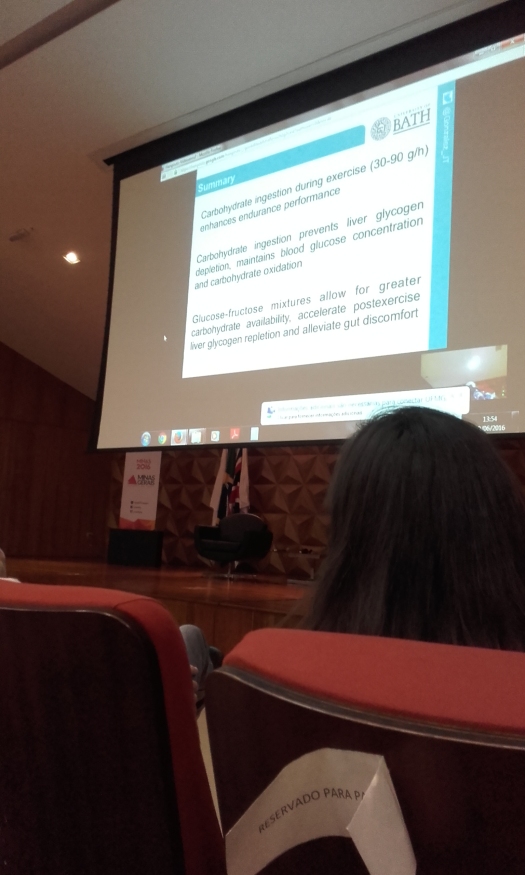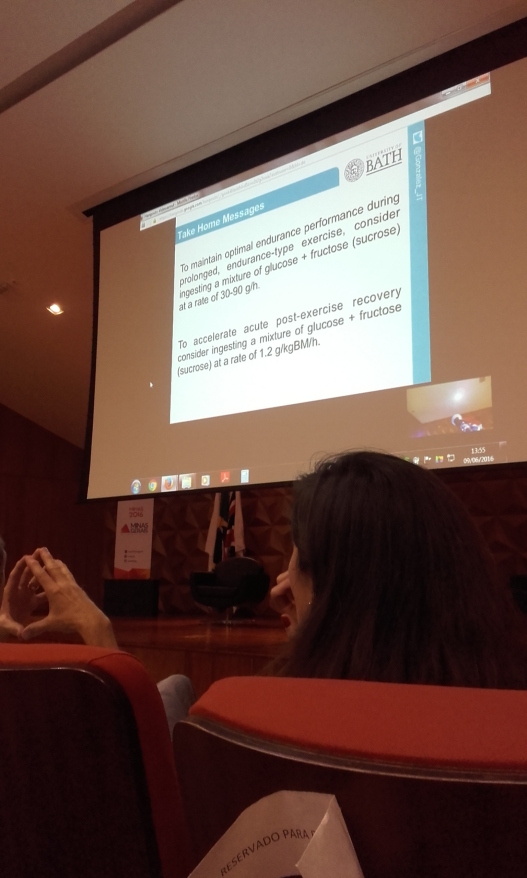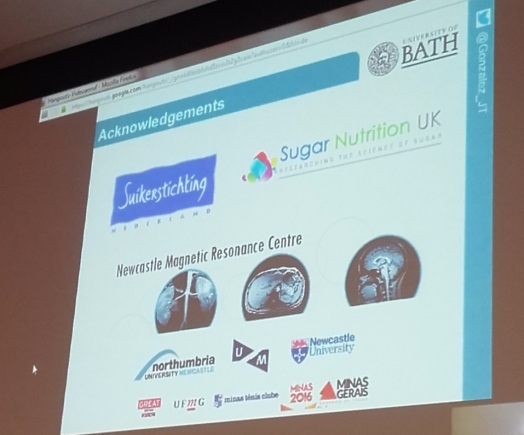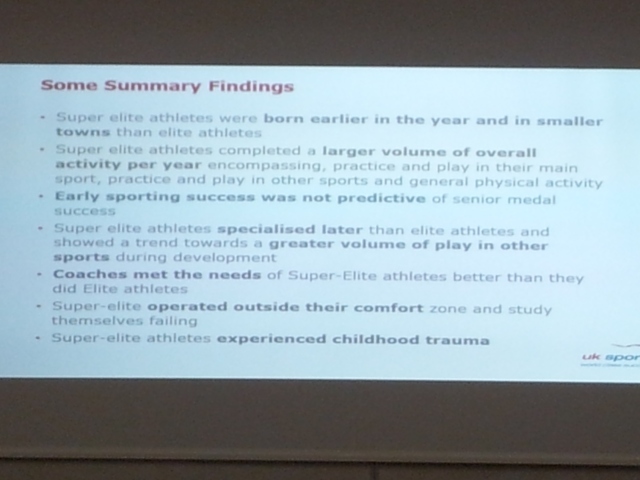I was at a conference in Brasil recently, where one study examined the use of carbohydrate during endurance exercise. Here were the findings which were presented to around 300 undergraduate and postgraduate sport students:

And there was more:

So the take home message was “consume a lot of carbohydrate”.
Then the speaker had to acknowledge the funders of the study. Here is the slide showing them:

The two top organisations were not described as problematic in any way. Instead they were positively acknowledged for their financial contributions. If you look around their websites you will clearly see a “pro-sugar” attitude of these organisations.
https://www.suikerinfo.nl/ and http://www.sugarnutrition.org.uk/index.html (At the end of 2016, the “British Nutrition Foundation” ceased operating.)
On the day of the conference I took a screenshot of the info on their website. You can see just how much they advocate the use of sugar and refute sugar consumption as a cause of obesity. And even more incredibly, the source for their claim about sugar not causing obesity … is themselves! What a scam this is!

You can also see that many of the companies providing money to the British Nutrition Foundation have a strong profit motive for increasing consumption of their high sugar products.
I wonder if the closure of the British Nutrition Foundation is connected with consumers moving away from high sugar products?
Joe Piggin


